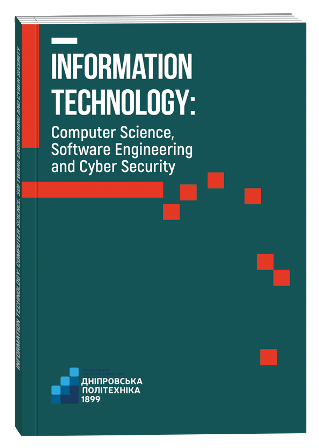DEFINITION OF THE CONCEPT OF “CYBER SECURITY” IN THE STATES AND INSTITUTIONS OF NATO MEMBER STATES AND UKRAINE: A COMPARATIVE ANALYSIS
DOI:
https://doi.org/10.32782/IT/2024-2-21Keywords:
the concept of cyber security, cyber security strategies of NATO member states, standards of international cyber security organizations, information securityAbstract
Actuality. The article is devoted to the issue of harmonization of the main concepts of cyber security with the relevant global standards of international organizations and NATO member states, which is relevant for the North Atlantic and European integration directions of Ukraine’s development. The purpose of this study is to establish, by conducting a comparative analysis, common and distinctive features in domestic and foreign definitions of the concept of “cyber security”. The research methodology is based on the use of methods of analysis, synthesis, semantic and hermeneutic analysis, comparative-content method, etc. The article analyzes domestic and foreign approaches to the formation of the definition of the concept of “cyber security”. Special attention is paid to the consideration of this concept in the standards of international state and non-state professional organizations, in NATO guidelines, etc. The scientific novelty of the research lies in the analysis of new (2020-2024) standards, strategies and methodological recommendations developed in Ukraine and the institutions and organizations of the NATO member countries, and in comparison of the basic approaches they use to define the “cyber security” concept. Conclusions. The author comes to the conclusion that the definitions used in the normative base of NATO member states, leading international organizations and professional unions are not unified, the emphasis in them is on protective and technical (information and communication systems) functions; the definition proposed in the legislation of Ukraine, although it contributes to the diversity of disagreements among NATO countries and partner countries, but has a broader level of established tasks and objects, focuses not only on protective, but also preventive function, and that on our opinion is particularly significant, based on the approach of anthropocentrism; most of the existing definitions of the concept of cyber security can be divided into three large conditional groups based on the subject component referred to in the definitions: the first group includes definitions that focus on cyber security as a special state of cyberspace, the second includes consideration of cyber security as a set of technical, legal and management methods influence, to the third – emphasis on the activities of authorized subjects and professionals, the goal of which is the safe state of cyberspace.
References
Про затвердження стандарту вищої освіти за спеціальністю 125 «Кібербезпека» для другого (магістерського) рівня вищої освіти: наказ Міністерство освіти і науки України. 18.03.2021. № 332.
Проект стандарту вищої освіти за спеціальністю 125 «Кібербезпека» для третього (доктор філософії) рівня вищої освіти. Міністерство освіти і науки України. https://mon.gov.ua/storage/app/media/gromadske-obgovorennya/2023/12/14/Zvit-ho-proyekt.stand.VO-125-Kiberbezpeka.ta.zakhyst.informatsiyi.na.tretomu.rivni.VO.14.12.2023.pdf (дата звернення: 08.05.2024).
Перелік галузей знань і спеціальностей, за якими здійснюється підготовка здобувачів вищої освіти: постанова Кабінету Міністрів України. 29.04.2015 р. № 266 (в редакції постанови Кабінету Міністрів України від 7.07.2021 р. № 762). URL: https://zakon.rada.gov.ua/laws/show/266-2015-%D0%BF#n11 (дата звернення: 08.05.2024).
Schatz D., Bashroush R., Wall J. Towards a More Representative Definition of Cyber Security. Journal of Digital Forensics, Security and Law, 2017. № 12 (2). URL: https://commons.erau.edu/jdfsl/vol12/iss2/8/ (дата звернення: 08.05.2024).
ISCED-F (Міжнародна стандартна класифікація освіти – Галузі, МСКО-Г) 2013. URL: https://uis.unesco.org/sites/default/files/documents/international-standard-classification-of-education-fields-ofeducation-and-training-2013-detailed-field-descriptions-2015-en.pdf (дата звернення: 08.05.2024).
National Cyber Security Strategy Guidelines. NATO CCDCOE. 2013 URL: https://ccdcoe.org/library/publications/national-cyber-security-strategy-guidelines/ (дата звернення: 08.05.2024).
ITU. Series X: Data networks, open system communications and security. Overview of cybersecurity. Recommendation ITU-T X.1205 https://www.itu.int/rec/T-REC-X.1205-200804-I (дата звернення: 08.05.2024).
Стратегія інформаційної безпеки: Указ Президента України. 28.12. 2021 р. № 685/2021. URL: https://www.president.gov.ua/documents/6852021-41069 (дата звернення: 08.05.2024).
Стратегія кібербезпеки України: Указ Президента України. 26.08.2021 р. № 447/2021 URL: https://www.president.gov.ua/documents/4472021-40013 (дата звернення: 20.05.2024).
Закон України Про основні засади забезпечення кібербезпеки України. 05.10.2017. URL: https://zakon.rada.gov.ua/laws/show/2163-19#Text (дата звернення: 20.05.2024).
Rout D. Developing a Common Understanding of Cybersecurity. ISACA Journal, 2015. V. 6. URL: https://www.isaca.org/resources/isaca-journal/issues/2015/volume-6/developing-a-common-understandingof-cybersecurity (дата звернення: 20.05.2024).
Walls A., Perkins E., Weiss J. Definition: Cybersecurity. Gartner, 2013. 7 June. URL: https://www.gartner.com/en/documents/2510116 (дата звернення: 20.05.2024).
Craigen D., Diakun-Thibault N., Purse, R. Defining Cybersecurity. Technology Innovation Management Review, 2014. № 4(10). Р. 13–21.
Марченко О. Кібербезпека та захист інформації: аналіз впливу ризиків та загроз із використанням сучасних ефективних стратегій кіберзахисту. Information Technology: Computer Science, Software Engineering and Cyber Security, 2023. № 3. С. 50–59. doi: https://doi.org/10.32782/IT/2023-3-6
Баранов О.А. Про тлумачення та визначення поняття «кібербезпека». Правова інформатика, 2014. № 2 (42). С. 54-62.
Фурашев В.М. Кіберпростір та інформаційний простір, кібербезпека та інформаційна безпека: сутність, визначення, відмінності. Інформація і право, 2012. № 2. С. 162-169.
Шеломенцев В. П. Правове забезпечення системи кібернетичної безпеки України та основні напрями її удосконалення. Боротьба з організованою злочинністю і корупцією (теорія і практика), 2012. № 1. С. 312-320.
Діордіца І. Поняття та зміст національної системи кібербезпеки. Jurnalul Juridic National: Teorie si Practica, 2016. Decembrie. P. 37-42.
Кубанов Е.В. Теоретичні підходи до понятійно-категоріального апарату кібербезпеки в системі публічного управління. Аспекти публічного управління, 2018. вип. 6, вип. 8, Вересень. С. 49-55. doi:10.15421/151846.
ISO/IEC TS 27100:2020. Технічна специфікація. URL: https://www.iso.org/obp/ui#iso:std:isoiec:ts:27100:ed-1:v1:en (дата звернення: 20.05.2024).
Cybersecurity. NIST glossary. URL:https://csrc.nist.gov/glossary/term/cybersecurity (дата звернення: 20.05.2024).
Cybersecurity. Fundamentals Glossary. ISACA. URL: https://www.isaca.org/-/media/files/isacadp/project/isaca/resources/glossary/cybersecurity_fundamentals_glossary.pdf?la=en&hash=B74D338B90ED9CEA1B4E05AABF40139EF692C866 (дата звернення: 20.05.2024).







